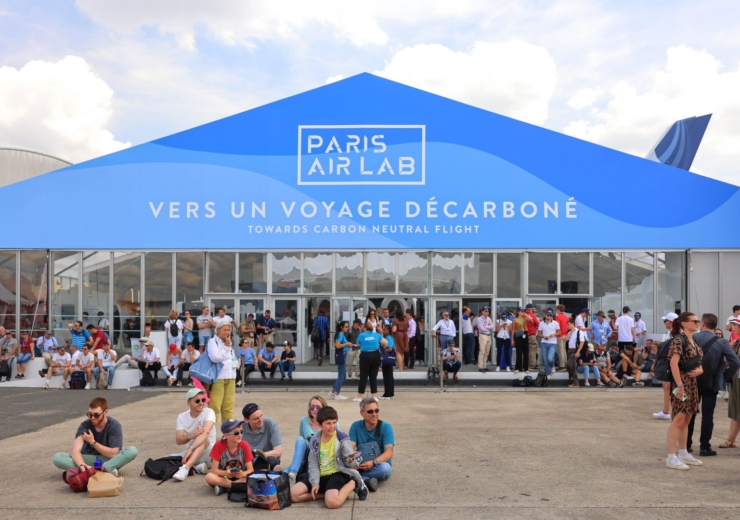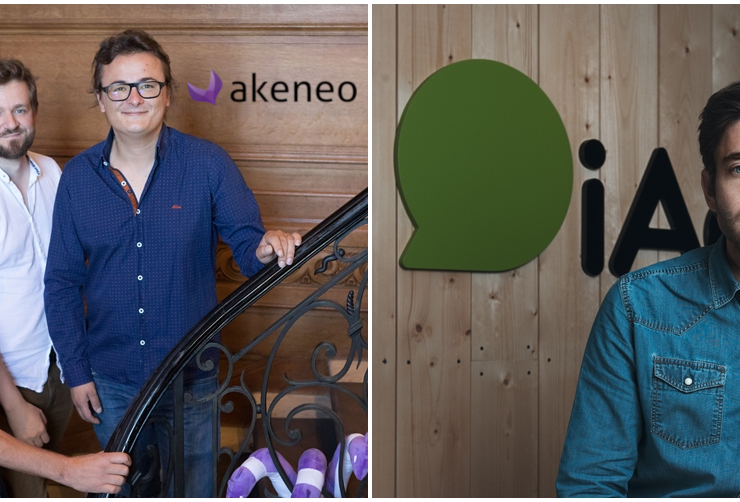Innovation is key, but in Atlantic France we believe it has to be human-centred and eco-friendly. We therefore support startups which are developing solutions to make IT more sustainable, and various players are also committing to responsible digital initiatives.
The Atlantic France region has recently been selected by the European Digital Innovation Hub’s call for tenders and is leading the DIVA project. The objective is to support 3,000 companies within three years and to promote the ethical development of promising digital sectors such as data and AI.
This positioning generates the promotion of eco-responsible technologies, but the aim is to also help local businesses achieve more sober and sustainable practices. In this field, many interesting initiatives are being carried out in the region.
Building a greener digital economy from hardware to software
Digital technology relies on data centres and reducing their carbon impact is a priority. In Atlantic France, several players are developing initiatives to create more virtuous data centres:
- The Guérande-based startup Denv-r is developing a floating data centre which will be partially submerged in the sea or in a river. According to the company, water cooling could allow for energy savings of up to 40%. A first data centre will be installed in June 2023, in the Loire river in Nantes
- Qarnot Computing, which has just set up an office in Nantes, markets clusters of computing units allowing for up to 96% of wasted heat to be recovered in order to produce usable heat and hot water
- Hyperion, the low-environmental-impact cloud solution invented by Laval company MCT, makes it possible to recover 90% of the energy generated by web servers
- The new Atos plant in Angers has been designed to be 100% carbon neutral, but also to be compatible with a hydrogen production plant
- Collective projects are emerging, such as the one led by Empreinte Numérique, which offers shared hosting in local, low-carbon data centres
Sustainability also requires optimising resources and avoiding unnecessary energy waste. In the digital sector, this can be achieved with software eco-design tools such as that of Nantes-based company Greenspector. By analysing mobile and web applications, it allows their environmental impact to be reduced, and is part of the “1000 solutions to change the world”, as labelled by the Solar Impulse Foundation.
In Nantes, a responsible digital charter
During the Nantes Digital Week, in September, 16 economic, associative and citizen organisations* have signed a charter to make digital more inclusive and eco-friendly. Here are the 10 commitments:
- Assist with the provision of equipment and the connection of families in Greater Nantes
- Organise access to digital resources and facilitate the appropriation of practices
- Maintain diversity of access to services so that the human link remains preserved
- Contribute to the emergence and development of a local reduction, repair and recycling (4R) sector, which creates jobs and supports innovations that support the ecological transitions of businesses and citizens
- Develop a process for anticipating and supporting digital-related changes in employment
- Collectively assess the environmental impact of digital technology
- Raise awareness for citizens and businesses on the impact of digital technology and set up systems and collective actions to reduce the environmental footprint of digital technology at territorial level
- Defend an ambitious data strategy
- Develop a common responsible digital culture
- Prioritise “free” solutions in order to contribute to the digital commons
* The first signatories of the charter are Atlangames, La Cantine Numérique, EMC2, Nantes Numérique Responsable, CCI Nantes St-Nazaire, IMT Atlantique, Femmes du Digital de l’Ouest, Nantes University, Atlanpole, Maison du Libre, Images & Réseaux, Alliance libre, ADN Ouest, PING, Naonedia, La French Tech Nantes.


 日本語
日本語  Français
Français 



